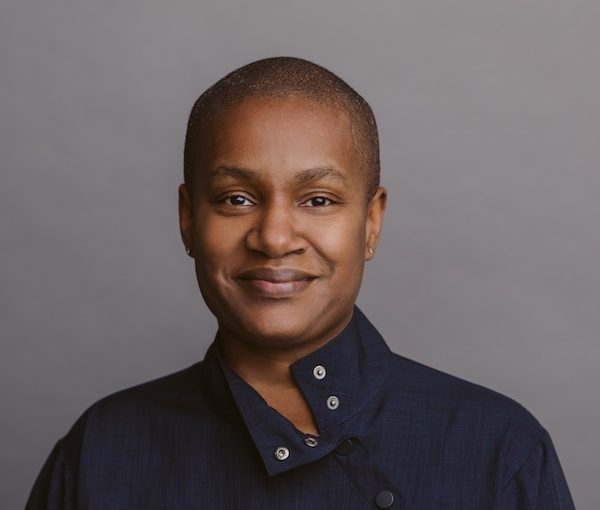Canadians will elect a new federal government on April 28. The resignation of Justin Trudeau upended expectations, and opinion polls suggest a more competitive contest than was predicted when the year began.
While British Columbia’s Jewish community has not historically produced a great number of elected officials at the municipal, provincial or federal level, several candidates in the province have connections to the community.

In the Vancouver Island riding of Nanaimo-Ladysmith, Conservative Tamara Kronis is mounting another run. She came a close second in 2021, in one of the most watched races in the country. Paul Manly, one of only two Green Party members of Parliament at the time, was defeated in that race by New Democrat Lisa Marie Barron. Barron is seeking a second term while Manly, who has been an outspoken critic of Israel, seeks to retake the seat and Kronis aims to beat them both. With the New Democrats and the Greens at historic lows in opinion polls, and the Liberals having placed a distant fourth last election, this may be the likeliest BC riding to send a Jewish representative to Ottawa.
Kronis is a lawyer with experience in the Ontario Human Rights Tribunal, as an independent director of Ontario Hydro, and she was an instructor at George Brown College in Toronto. She has served as advocacy director of Egale Canada, the national LGBTQ+ rights organization.

In Richmond East-Steveston, Zach Segal is also running for the Conservatives. Born and raised in Richmond, Segal has served on the board of the Rotary Club of Richmond, the Kehila Society, and the City of Richmond’s seniors advisory committee. He was also a Big Brother in the Big Brother and Big Sister Program.
During the Stephen Harper Conservative government, Segal worked in Ottawa in national defence and transportation, and now works in commercial real estate. Segal was the Conservative candidate in Vancouver Granville in 2019.
Richmond East-Steveston is a swing riding that has changed hands in each of the past three elections. First-term Liberal MP Parm Bains aims to hold the seat, which he took from the Conservatives in 2021.
In Vancouver Centre, filmmaker, activist and associate professor at the University of British Columbia Avi Lewis is running for the New Democratic Party, trying to unseat Liberal Hedy Fry. The longest-serving female MP in Canadian history, Fry has won 10 consecutive elections since defeating then-prime minister Kim Campbell in 1993.

Lewis is socialist royalty in Canada, son of the former Ontario NDP leader Stephen Lewis and grandson of David Lewis, a federal leader of the NDP in the 1970s and a leading figure in the NDP’s predecessor party, the Cooperative Commonwealth Federation, almost since its inception in the 1930s.
Avi Lewis is one of Canada’s most prominent critics of Israel. He has characterized Israel’s actions in Gaza as “genocide,” urged the Canadian government to cease arms sales to Israel, and supports South Africa’s call for the International Court of Justice to investigate Israel.
While the New Democrat candidate historically comes second in Vancouver Centre, Fry has held the riding even in the darkest days of the federal Liberals’ fortunes and, in 2021, won by more than 10 points over her NDP opponent. With polls currently suggesting historic lows for the NDP, the 83-year-old Fry seems as safe as ever.
Ken Charko, who has close ties to Vancouver’s Jewish community, is running as the Conservative candidate in Vancouver Quadra. Charko is a Vancouver business leader who is the proprietor of the Dunbar Theatre and has served as president of the Hillcrest Community Centre for the past five years.

Charko has been awarded the Trinjan Diversity Award – an award given by Trinjan & Mata Gujri Foundation for commitment to diversity in the workplace. He has volunteered with groups such as the Canadian Red Cross, the Vancouver Olympic Committee and the Vancouver Paralympic Committee. He provides guidance to students of the Vancouver Film School on aspects of the motion picture industry. He also serves on the board of the Motion Picture Theatre Association of BC, representing independent theatre owners. He is a recipient of the Chamber of Commerce Business of the Year.
Quadra has been held by the Liberals even longer than Vancouver Centre, having been snatched from the Conservatives in 1984 by then-prime minister John Turner. Successive Liberal MPs have held it ever since, including Joyce Murray, since 2008. Murray is not running for re-election and the Liberals have nominated Wade Grant, who has served as an elected Musqueam councilor. While riding boundaries have changed slightly since 2021, Murray won the seat easily, besting her Conservative opponent by about 15 points.
Election Day is Monday, April 28. In British Columbia, polls are open 7 a.m. to 7 p.m. There are many other ways and days to vote, including advance polling from April 18 to 21, 9 a.m. to 9 p.m.; early voting until April 22 at any Election Canada office; and an opportunity to vote by mail. To vote by mail, you must apply online or at an Elections Canada office by April 22. Full details are available at elections.ca.
CJPAC, the Canadian Jewish Political Affairs Committee, is urging Jews and allies to engage in the political process and has details and opportunities at cjpac.ca/elections. CJPAC is a national, independent, multi-partisan organization, whose mandate is to engage Jewish Canadians and allies in the democratic process and to foster active political participation.
CIJA, the Centre for Israel and Jewish Affairs, has additional election-related information, including questions to ask candidates on topics including accountability for hate, strengthening Canada-Israel relations, and safeguarding Canadian society and values. See cija.ca.


